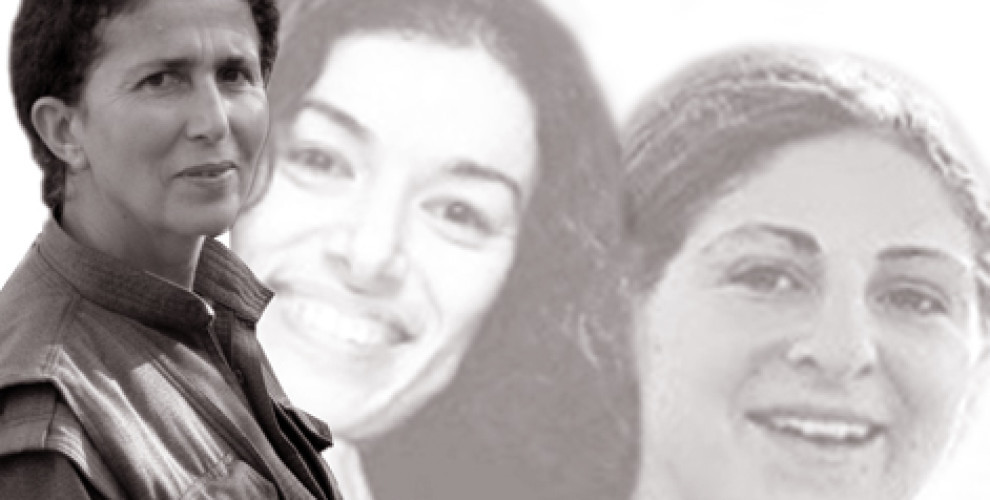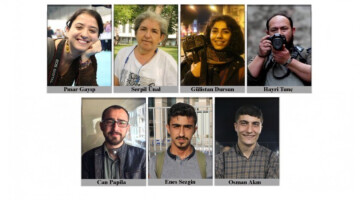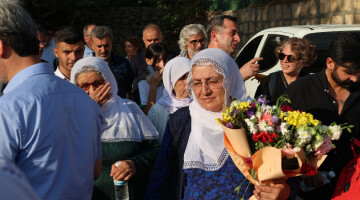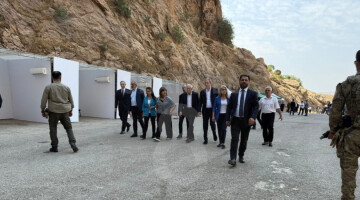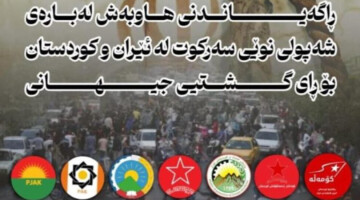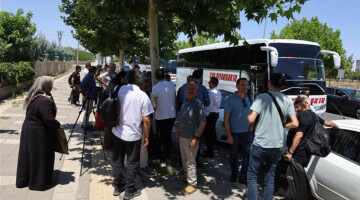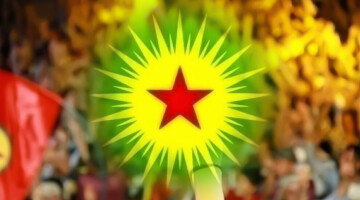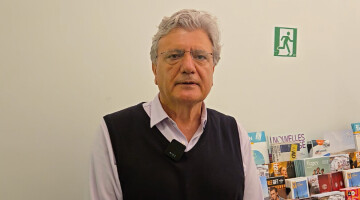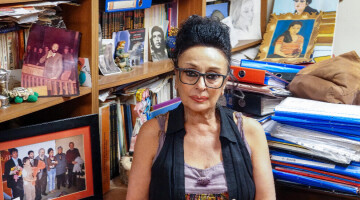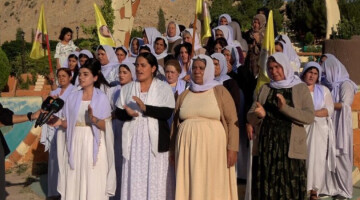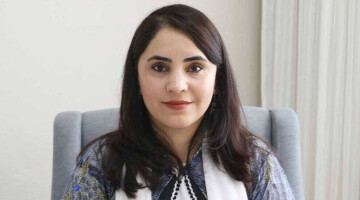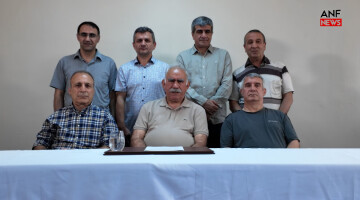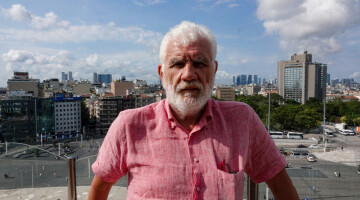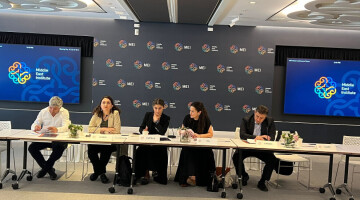On 9 January 2013, three Kurdish activists were murdered in Paris. The presumed killer, arrested, died in the prison due to a cerebral tumor end of 2016. But the court case is not ended, because those who ordered the crime inside the Turkish intelligence services MIT are identified.
We met lawyer Antoine Comte, who says that the French political powers lack the courage in this case, and we met the anti-colonial writer Nils Andersson, who finds it suspicious that the judicial court cases in this kind of murders never lead to a verdict.
We publish here below the non-exhaustive list, composed by Nils Andersson, of non-clarified political crimes committed on the French soil.
Physical liquidation outside France
Nils Andersson: "One counts by dozens the non-clarified political murders in France since the end of the fifties until today. But France commits also killings outside its territory. These are called "homo operations": an operation against one person to eliminate him or her physically. Former President François Hollande has recognized that he had given himself orders for homo operations abroad: in Chad, in Syria, in Lebanon. The French right wingers shouted "Scandal", because these things "are not admitted". So, they did not deny it. Mitterrand has always denied being informed about the Rainbow Warrior case, but this kind of operations cannot be done without the agreement of the Presidency or at least of the concerned minister."
Non-clarified killings in France
Nils Andersson: "But several dozens of political killings took place on the French soil, with or without collusion of French intelligence services and political powers, essentially against Palestinians, South-Africans and Algerians. However, most of the political murders have been perpetrated against Basque activists, done by the Spanish government in France, but with a certain collusion with the French powers.
The big question is: none of these killings has ever found a verdict in a court room. Most of the time there is no verdict, or a "non-proven" verdict, except for two cases: Chapour Bakhtiar, a former minister under the Shah of Iran and another person close to the government of the Shah of Iran. Both have been killed in France. The killers have been judged. So my conclusion is: when it's against friendly governments, the killers and those who ordered the killings are found, identified and judged, meanwhile in all other cases - South-Africa, Algeria, Palestine, the Kurds, the Tamils, ... - there is not any progress in the court case. There is never a verdict. That's very suspicious."
Indirect collusion with the French services: Ben Barka, Henri Curiel ...
Nils Andersson: "We know that in certain cases - in the case of Ben Barka it's obvious - there is collusion between French intelligence services and the killer. I met Ben Barka some weeks before his assassination. I was in Switzerland and Ben Barka was protected by Spanish communists. Not really ideal to be protected in a country by people who are themselves persecuted by the police for their anti-Franco activities. So I met Ben Barka to solve that problem and when we spoke about a protection in France, he answered: "No, because I am protected by General De Gaulle." But the protection of De Gaulle was not sufficient. There were links between branches of the French intelligence services with foreign intelligence services. A Swiss journalist has told me: "When Ben Barka came to Paris, the day when he was kidnapped, the Swiss airport police told him not to take that airplane". But Ben Barka had a great trust in De Gaulle. The same type of collusion took place in the killing of Henri Curiel. Mohamed Boudia however was killed by the Mossad. The Mossad can act in France being covered, at least for its exfiltration. But Ben Barka and Henri Curiel have been killed by the same kind of people. The collusion is evident in the killings of Ben Barka and Henri Curiel."
Turkey is involved: never a trial, that's suspicious.
Later, Tamil Tigers were murdered in Paris in 1996 and in 2012, and the three Kurdish activists in 2013. If French intelligence services are not directly involved, the French state is not very impatient nor courageous to clarify these killings.
Nils Andersson: "In the case of the killing of the three Kurdish women, French services are not involved, clearly not, but they lack courage to continue the judicial case. The intelligence services of the Turkish state intervene in another territory to assassinate people. If there is maybe not a direct collusion, there is an indirect collusion, because as Antoine Comte confirms: never, not once, there is a trial ending with a verdict condemning the killers, that's more than suspiciouc. They organize hearing commissions, but that's rather to show that they are doing at least something. For the killing of the two ex Iranian ministers however, a trial ended in a verdict, because it involved powers who were not really in a good relationship with France. But when the concerned country is a friendly state, it's scandalous that the investigation never ends with a verdict. And for the three Kurdish women, this is a scandal, because the involvement of Turkey is proven."
A question of political will
Nils Andersson: "There is no other country in Europe with more political assassinations than France. We notice a judicial impotence. And every time the French authorities declare: "We will do everything to find and judge the killers," and then nothing happens. In the case of the killed Kurdish women, the investigation is going in the direction of those who ordered the killings, thanks to published phone tapping, that points directly towards Turkish secret services, the MIT. If there is a will to resolve these killings, there is a way."
Antoine Comte, lawyer of the relatives of the three killed Kurdish women:
"It's a question of political will. There is a complaint at the public prosecutor's office from us against those who ordered the assassinations. The question is whether the public prosecutor will be willing to open again a case, to start again a part of the investigation to end up with them. We filled in new elements in the file allowing the identification of some of those who gave the order. Erdogan himself recognized that the order of the killings came from the Turkish secret services, the MIT, but now the French public prosecutor needs to have the courage to raise this question. Or will they do as in the past: leaving these crimes committed on French soil not clarified?"
Turkey sends its death squads
Antoine Comte: "Concerning the file of the three assassinated Kurdish women: or the French antiterrorist prosecutor opens an investigation, or we will expose publicly what happens in other European countries, where death squads are on the loose in order to assassinate Turkish or Kurdish dissidents. There are cases in Germany and in Belgium, and all these cases have links with France. So if we are obliged to expose all this publicly, everybody will see the cowardice of the French government when it is about groups or death squads coming to assassinate opposition members in Europe."
Demonstration on Saturday 6 January, 11 AM in Paris, Gare du Nord, to demand the truth and justice concerning the assassination of Sakine Cansiz, Fidan Dogan (Rojbîn) and Leyla Saylemez.
List of non-clarified assassinations in Paris
21/05/1959: Amokrane Ould Aoudia, Algerian, lawyer of a defense committee of activists of the Algerian FLN (National Liberation Front)
29/10/1965: Mehdi Ben Barka, Moroccan, founder of the National Union of Popular Forces UNFP, responsible for the preparation of the Tricontinentale in La Havana
8/12/1972: Mahmoud Al Hamchari, Palestinian, representative in France of the Palestinian Liberation Organization PLO
5/04/1973: Basil Al Kubeisi, Irakian, member of the Central Committee of the Popular Front for the Liberation of Palestine PFLP
28/06/1973: Mohammad Boudia, Algerian, activist in the Algerian FLN, later in the Palestinian PFLP
4/05/1978: Henri Curiel, Egyptian, internationalist
21/09/1980: Salah Bitar, Syrian, opponent to the Syrian regime
29/03/1988: Dulcie September, South-African, representative in France for the ANC, African National Congress
7/04/1989: André Mecili, Algerian, leader of the Front of Socialist Forces FFS
8/06/1992: Atef Bsissou, Palestinian, member of the revolutionary Council of Fatah, PLO
11/07/1995: Abdelbaki Sahraoui, Algerian, co-founder of the Front Islamique du Salut FIS, in favor of a dialogue between the parties in conflict
26/10/1996: Kandiah Perinpanathan and Kandiah Kesenthiran, responsibles in Europe for the Tamil Tigres for the Liberation of Eelam Tamoul
8/11/2012: Nadarajah Mathinthiran, responsible in France for the Tamil Tigers for the liberation of Eelam Tamoul
9/01/2013: Sakine Cansiz, Fidan Dogan, Leyla Saylemez, respectively founder of the Kurdistan Workers Party PKK, representative in France of the Kurdistan National Congress and Kurdish activist.
More than 20 activists of ETA were killed in France, without any judicial investigation.
This non-exhaustive list refers to political assassinations in which foreign states are involved, with the involvement or risk of involvement, direct or indirect, active or passive of the French state.

